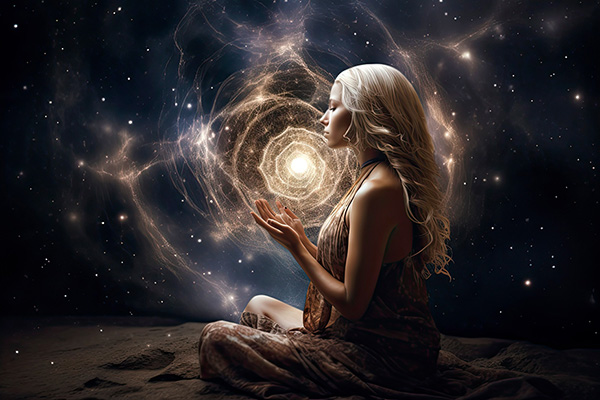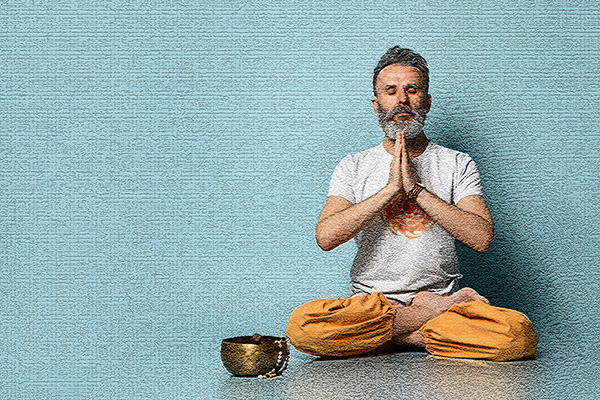In The Grace Of Divine Time
I usually see them poised in stillness upon the bare branches of the winter trees. But today, most of my sightings were of them circling in flight overhead, crossing back and forth over the road.
Sometimes they appeared to be pursuing their prey, other times leading their young, or simply enjoying the freedom of gliding through the sky beneath the beautiful morning sun. This occurred in several places along my journey, spanning a range of miles beyond the one roost and eagle family I’ve been witnessing.
Before, during, and after my way was bedazzled with this abundance of bald eagle beauty, my thoughts had been steeped in the topic of time. I sensed the eagles crossed my path to affirm and guide me in my contemplation of eternal time.
I also sensed they came as signs of a shift in my life. They were reminding me that what has been waiting in my life – energy that has been paused, stuck or still, resting, gathering, or incubating – is beginning to move on the horizon of visibility, and gradually gaining momentum.
When I arrived home, waiting in my mailbox was a pamphlet with the printed words: The Times Are Racing. Well, message received loud and clear! It’s time to express my appreciation of time.
Seeing The Real World Of The Heart
 As a woman and mother, I have questions about things happening in my world. As an intuitive empath, I receive questions that others have about things happening in their world. A recent experience sums up what I consider to be the most reliable source of inner wisdom, and where answers can be accessed by all of us.
As a woman and mother, I have questions about things happening in my world. As an intuitive empath, I receive questions that others have about things happening in their world. A recent experience sums up what I consider to be the most reliable source of inner wisdom, and where answers can be accessed by all of us.
I was awake one night with the energetic sensation of a specific situation permeating my experience. I could feel the energy in each expansion of my chest, as I inhaled. It filled my every breath, my every sense. My mind questioned, but I heard the guiding whisper of God in my soul say, “The real world is in the heart.”
There are spiritual dimensions of reality that are deeper, finer, subtler, more substantial than what is evident on the surface in the physical world. The door that opens to them is within the heart. There is truly more than meets the eye.
This realization reminded me of the illustration plates in the anatomy section of my parents’ encyclopedia, which fascinated me when I was a child. It wasn’t the human body per se that so intrigued me; it was the way the transparencies overlaid one another to form the whole picture.
At the top of them all was the skin, creating a picture of a human the way I was accustomed to see. As I turned the first page, I got a glimpse of something I had felt but never seen directly before with my eye, namely muscles. Page by page continuously showed deeper levels of anatomy beneath the surface, including the circulatory system, organs, and skeleton.
The Spiritual Foundation Of Self-Trust
 Do you have difficulty trusting yourself? If so, you are not alone. Clients frequently tell me they find it hard to trust themselves for various reasons. Fortunately, it is never too late to rediscover, recover and heal your divine, confident self.
Do you have difficulty trusting yourself? If so, you are not alone. Clients frequently tell me they find it hard to trust themselves for various reasons. Fortunately, it is never too late to rediscover, recover and heal your divine, confident self.
I struggled with self-doubt for many years, due to experiences that undermined the development of my sense of self in the formative years of my life. I have since dedicated decades to getting to the root of my self-doubt, and in time cultivated self-trust in its place.
My path to healing was intuitively guided by God, Source, Spirit, the Divine, every step of the way. Now sharing the wisdom and insights I have learned from my self-trust journey has become one of the prominent themes in my service to others.
The first major lesson I learned was the importance of becoming anchored in a spiritual conception of the self. I found this understanding in the teachings of two Hindu scriptures known as the Bhagavad Gita and Srimad-Bhagavatam. These ancient texts meticulously explore the eternal identity of the self and how to revitalize it is.
Our true self is the spirit soul present within our physical body. It is the spark of life force, the divine consciousness that animates both our body and mind. This spiritual spark emanates from the Supreme Personality of God and bears its own eternal, individual identity. Although the soul is an atomic particle of God’s energy, it is also a person – the real person who is the self.
We are not our body, mind, or intelligence. We are not the personas we project or identify as in this world. All of those are mere ‘coverings’ of our true soul essence, much like the clothes we wear to cover our body.
Faith As A Spiritual Science
 It is generally assumed that all forms of ‘faith’ is merely matter of ‘belief.’ In other words, to have faith is seen as having belief that is blind; it is a belief without reason, evidence, or experience. However, there is another kind of faith that develops through a reciprocal relationship.
It is generally assumed that all forms of ‘faith’ is merely matter of ‘belief.’ In other words, to have faith is seen as having belief that is blind; it is a belief without reason, evidence, or experience. However, there is another kind of faith that develops through a reciprocal relationship.
According to the Vedic teachings and the practices of Krishna Bhakti (awareness of, and affection for Krishna, the Supreme Person) faith begins with hearing spiritual knowledge from a liberated soul, who is beyond the four defects of material conditioning.
Ordinary people (or conditioned souls) have four defects due to their contact with material existence. These defects are:
- The tendency to make mistakes.
- To be illusioned.
- The propensity to cheat others.
- To have imperfect senses.
At the initial phase of faith, there is an appeal to the intelligence of the conditioned soul that evokes exploration of knowledge through hearing deeper spiritual insights, which in turn appeals to their intelligence to apply it.
From the experiment of applying it, comes observable experiential results that corroborate the truth of what was initially heard from the transcendental authority (liberated soul).
This confirming experience not only yields faith in the knowledge and process applied, but it also forms an evidential knowing beyond a mere baseless, ‘blind’ belief. Therefore, developing a relationship with God through Bhakti-Yoga or Krishna Consciousness is a spiritual science.
How To Truly Let Them Go
 When a relationship ends, we may find it very difficult to let go of the other person, especially when they have been the one who chose to leave. Friends and clients have often asked me this question. How do I forget him? How do I stop thinking about her? I have asked myself this a few times in my own life too.
When a relationship ends, we may find it very difficult to let go of the other person, especially when they have been the one who chose to leave. Friends and clients have often asked me this question. How do I forget him? How do I stop thinking about her? I have asked myself this a few times in my own life too.
My psychic observation has been that consciously trying to forget someone for whom we have strong feelings of love and affection will only serve to make it worse. ‘Forgetting’ someone we love is unnatural and goes against our grain. It only creates resistance that further increases tension and intensifies our pain.
So, it is usually better, but not easier, to channel or process our feelings of love and affection for another soul, in a more constructive, liberating way. This includes honoring the freedom of every soul’s path in relationship with God, Source, Spirit, the Divine.
It is essential to let our feelings flow, because emotions are energy in motion (e-motion). The energy will move through and in time lessen, like storm clouds passing through the sky, until the sun is visible to the eyes again.
Keeping the heart open is an important part of this process. The vision God gives me to describe this is of being in your home, going about your own life within it, with all your attention focused on the activities, surroundings, and experiences of the moment, and simply being present with what you have and what is, while the front door remains open in the background.



